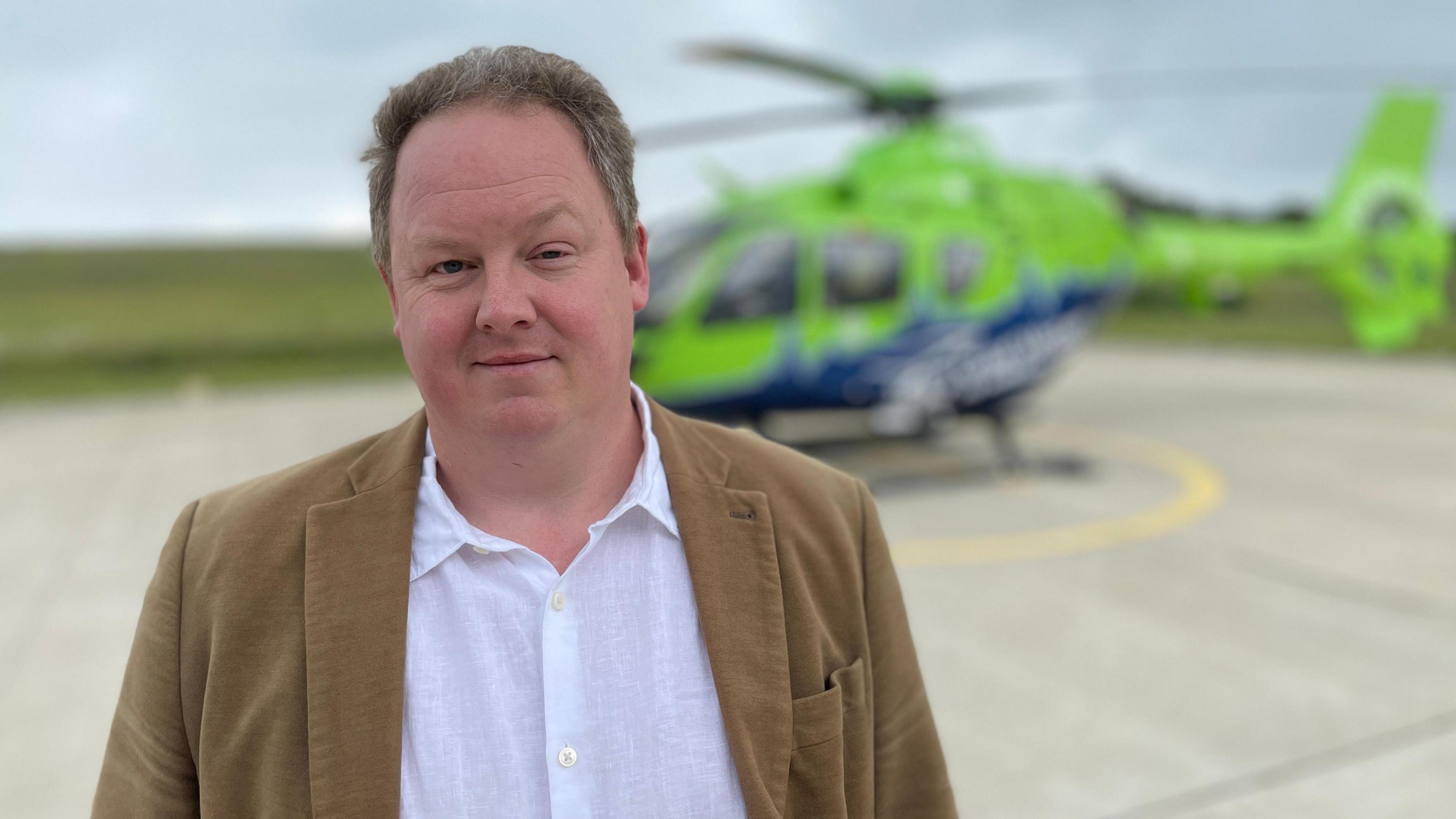Air ambulance could be grounded over costs, CEO warns
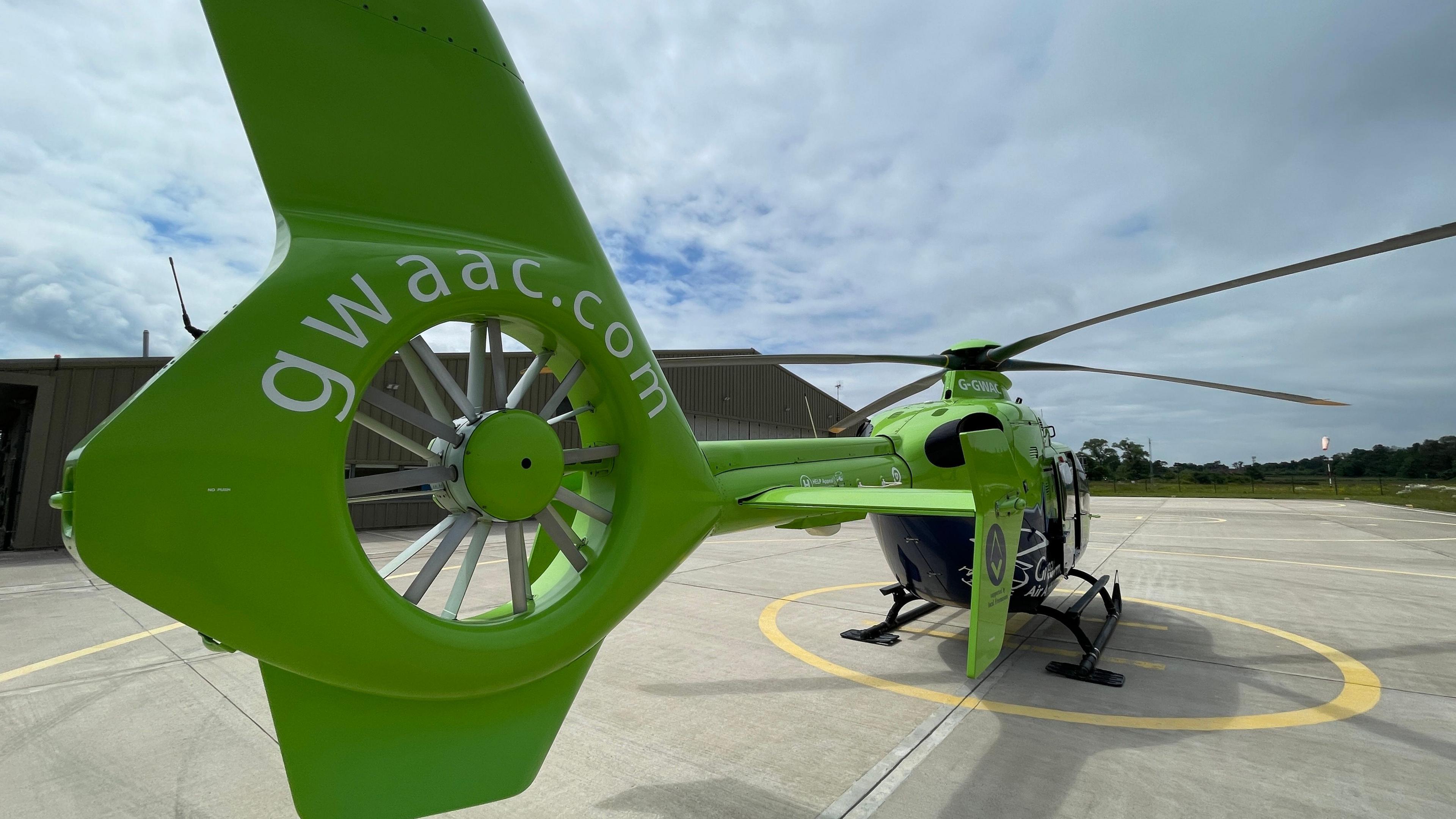
The Great Western Air Ambulance CEO has warned it might have to be grounded
- Published
Great Western Air Ambulance may have to be grounded if the charity has to continue relying on reserves to pay a record £300,000 deficit, its chief executive.
CEO of Great Western Air Ambulance Charity (GWAAC) Anna Perry said: "We are asking people to support us so that we do have certainty for future years.
"You can cope with the deficit for a certain number of years but ultimately everybody has to make difficult decisions."
GWAAC has forecast that it will see around 400 extra call-outs this year compared to 2023.
On average, that is an extra person every day who needs the specialist skills of GWAAC’s critical care team.
The specialist crew responded to 1,159 people in urgent need of critical care between 1 January and the end of June - an increase of around 21% compared to the same period last year.
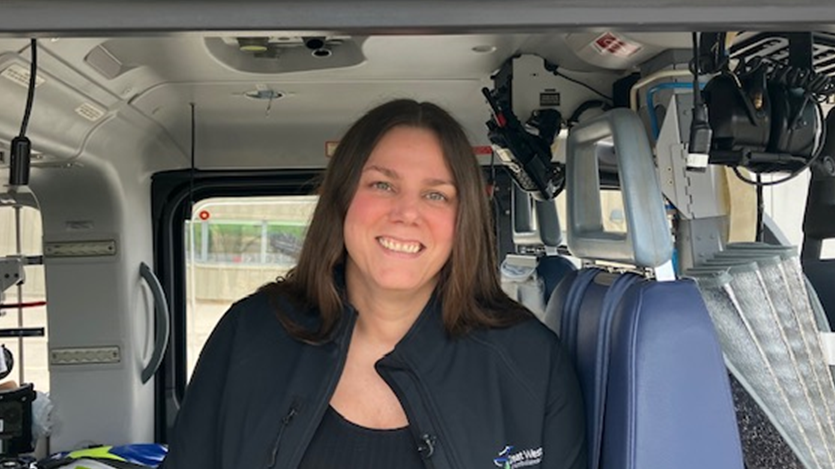
CEO of GWAAC Anna Perry has warned the ambulance may have to be grounded
Ms Perry said the charity has been relying on reserves and in her seven years in charge she has never known such a bad financial situation.
"Ultimately the thing that saves an air ambulance charity money is stopping using the helicopter," she added.
"But we know local people don't want us to have make those decisions so we are confident that if people hear about the need of GWAAC, and our other neighbouring charities, then hopefully they will want to support us.
"You can cope with the deficit for a certain number of years but ultimately everybody has to make difficult decisions."
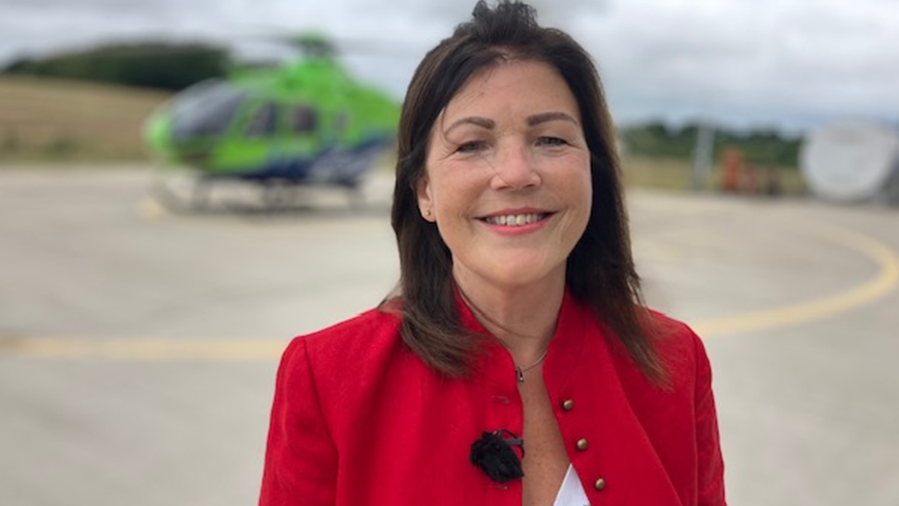
Ann Carter was helped by the air ambulance after having a heart attack
Around six people a day across Gloucestershire, Bristol, Bath and beyond require their lifesaving services.
Among them people like Ann Carter who had a heart attack on 14 March 2024.
The 65-year-old from Stoke Orchard near Cheltenham went into cardiac arrest when at home alone and lost consciousness.
Ms Carter said: "My daughter just got home and I said her name and then died. I was on the phone to the paramedic and they picked the phone up and said you must do CPR.
'Miraculous'
"I was trapped in the bathroom doorway so she ran outside, grabbed the local postman and between them they pulled me out and said 'sorry mum but you're a dead weight and between them they did CPR for quite along time."
An ambulance crew arrived and GWAAC specialist paramedic in critical care, Callum, was dispatched.
He arrived and gave Ann critical care before travelling with her to Gloucester Royal Hospital.
Ann was in intensive care for three days following the incident and recovered in a cardiac unit.
Just four weeks after her cardiac arrest Ann attended a CPR training day run by GWAAC where she met Callum and one of the ambulance crew who had attended to her on the day.
She said: “It’s miraculous I’m alive really. I was in a coma for three days, but now I am absolutely over it all and a whole new life, thanks to these wonderful people.”
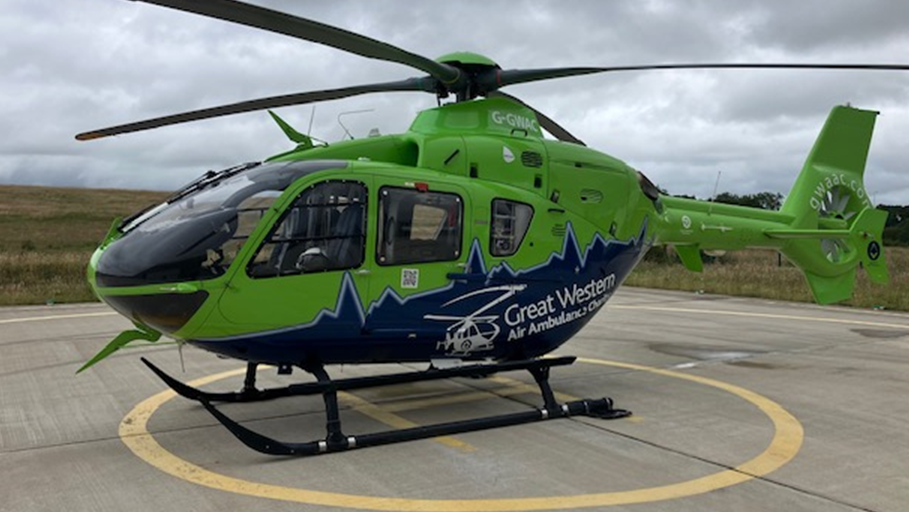
The air ambulance could be grounded, its CEO warned
The Great Western Air Ambulance has seen an increase in call outs of more than 20% in the first quarter of 2024.
The charity has noted a significant increase in call-outs to babies, children and teenagers, both in percentage of total missions (19%) and in number.
Call-outs to young people increased by 52% compared to the same period in 2023 and the crew responded to almost double the number of babies (from 26 to 50).
Responses to calls for someone who collapsed or for a stabbing-related incident also increased.
While call-outs to these types of incidents make up a small percentage of GWAAC’s total missions, the number of these that GWAAC has been called to has increased.
Calls to someone who has collapsed increased by 85% compared to 2023 (from 41 to 76) and a stabbing-related incident increased by 75% compared to the same period in 2023 (from 47 to 82).
In the first six months of 2024, the percentage of call-outs that GWAAC’s crew responded to using one of their critical care cars increased by 7% when compared to the same period last year. The crew travelled to more than three-quarters of patients in a car rather than the helicopter.
'Busiest start'
Wiltshire Air Ambulance has also experienced its busiest start to a year ever, with a 25% increase in missions in the first half of 2024.
The Wiltshire service is not in financial difficulty. It is showing an increased level of usage.
The charity was tasked to 682 incidents between January and June, up from 543 for the same period in 2023.
This represents a rise of 25.6% in the need for the crew’s critical care and expertise.
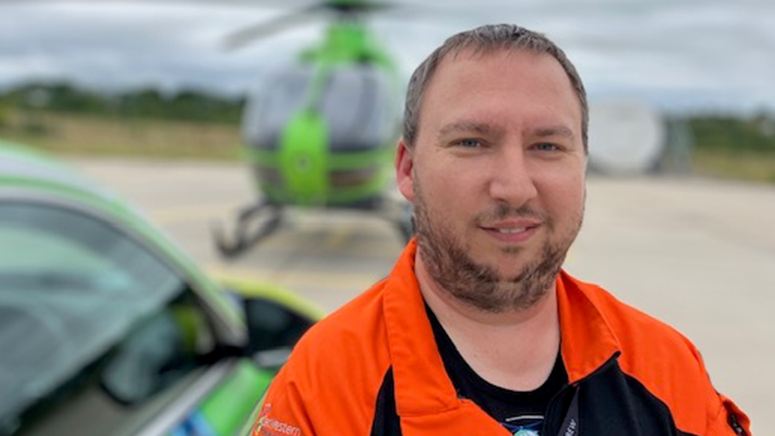
Tim Ross-Smith, GWAAC’s operations officer
Follow BBC Bristol on Facebook, external, X, external and Instagram, external. Send your story ideas to us on email or via WhatsApp on 0800 313 4630.
- Published6 July 2024
- Published7 June 2024
